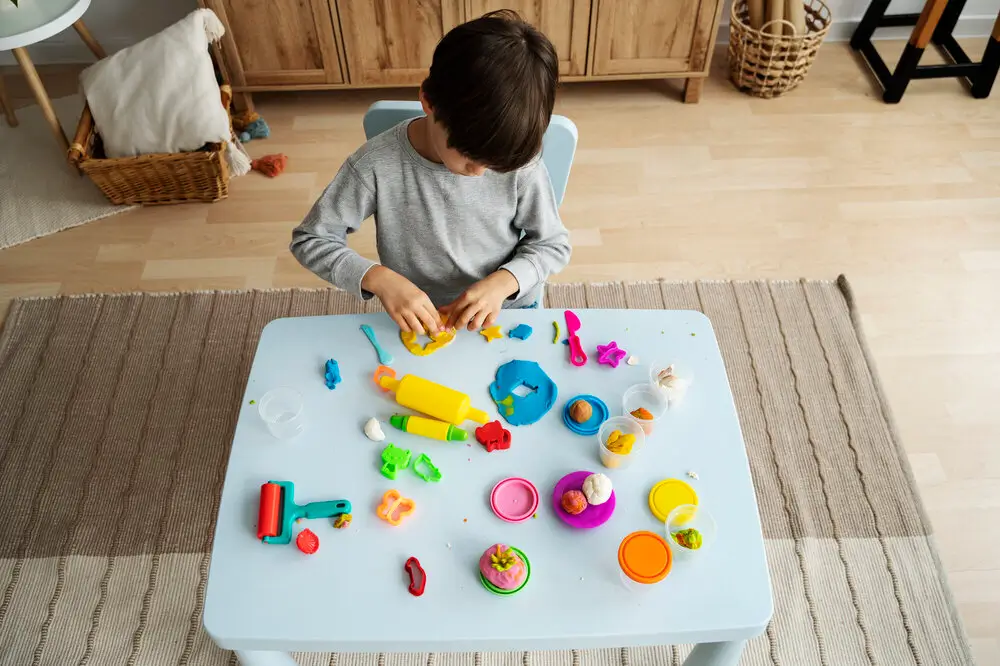A consistent and calming bedtime routine is essential for helping babies feel safe, secure, and ready for sleep. Establishing a bedtime routine not only aids in better sleep but also fosters a sense of security and comfort. Here’s a comprehensive guide to creating the perfect bedtime routine for your baby, ensuring a peaceful night’s rest for both of you.
Why Is a Bedtime Routine Important for Babies?
A bedtime routine provides several benefits for your baby, including:
-
Promotes Better Sleep: Babies thrive on routine and consistency. A bedtime routine signals to your baby that it’s time to wind down and prepare for sleep.
-
Encourages Self-Soothing: By practicing a consistent routine, babies learn to associate certain actions with sleep, helping them self-soothe and fall asleep independently.
-
Strengthens Parent-Baby Bond: Bedtime is an excellent opportunity for bonding. Quiet, intimate moments like reading a book or singing a lullaby can foster a strong connection.
-
Regulates Sleep Patterns: Babies, like adults, benefit from a set sleep schedule. A consistent bedtime helps set biological rhythms, which promote longer and more restful sleep.
Steps for Creating a Bedtime Routine for Your Baby
-
Establish a Consistent Time
Consistency is key. Put your baby to bed at the same time each night. Babies thrive on predictability, so a regular bedtime helps them understand when it’s time to sleep. -
Create a Calming Environment
The environment plays a huge role in signaling to your baby that it’s time for sleep. Here are some tips:-
Dim the Lights: Lower the lights about an hour before bedtime to help your baby’s body produce melatonin, the sleep hormone.
-
Make the Room Cozy: A warm, dark, and quiet room can help your baby feel safe and relaxed. Consider using a white noise machine to mask other sounds that might be disruptive.
-
-
Incorporate a Bath
A warm bath can be incredibly soothing for babies. The warm water helps relax muscles and signals that it’s time to unwind. It can also be a fun bonding time between you and your baby. Make sure to keep the bath short and gentle to avoid overstimulation. -
Feeding Time
Depending on your baby’s age, a late-night feed may be part of the bedtime routine. Make sure the room is quiet, dimly lit, and free from distractions. This time should be relaxing for both of you. -
Gentle Massage
A light, gentle massage can help soothe your baby. Focus on their legs, arms, and back, and use a soft touch to avoid overstimulation. This can help calm your baby and promote better sleep. -
Story Time or Singing a Lullaby
Reading a short, soothing book or singing a lullaby are excellent ways to relax your baby before sleep. Choose books with soft pictures and gentle language, and avoid stories that might be too exciting or stimulating. -
Use a Sleep Sack or Blanket
Swaddling or using a sleep sack can help your baby feel secure. Swaddling provides a sense of comfort, and sleep sacks help prevent your baby from getting tangled in blankets. -
Establish a Wind-Down Routine
Gradually reduce stimulation before bedtime. This means turning off screens, lowering noise levels, and gently transitioning your baby from playtime to bedtime mode. A wind-down period of 20 to 30 minutes is ideal.
Tips for a Smooth Transition to Sleep
-
Avoid Overstimulation: Keep the activities in the hour leading up to bedtime calm and quiet. Overstimulation can make it harder for your baby to fall asleep.
-
Stay Calm and Positive: Babies pick up on their parents’ emotions. Try to remain calm and relaxed during the bedtime routine to convey a sense of security and peace.
-
Be Patient: It might take some time for your baby to adjust to the new routine. If they’re having trouble falling asleep, offer comfort through gentle rocking, patting, or speaking in a soothing voice.
Common Bedtime Struggles and How to Handle Them
While a consistent bedtime routine is helpful, sometimes babies resist sleep. Here are a few common challenges and tips for handling them:
-
Frequent Night Wakings
If your baby wakes up frequently during the night, it may be a sign of hunger, teething discomfort, or separation anxiety. Make sure your baby’s sleep environment is conducive to rest, and comfort them with a gentle pat or soothing words. -
Sleep Regression
Around 4 months, many babies experience sleep regression, where they suddenly begin waking more often at night. This phase is usually temporary, and the best thing you can do is remain consistent with your bedtime routine. -
Separation Anxiety
As babies grow, they may experience separation anxiety, especially around 6 to 9 months. If your baby cries when you leave the room, try offering comfort through a soft voice or gentle patting without picking them up immediately.
When to Start a Bedtime Routine
You can begin establishing a bedtime routine as early as 6 to 8 weeks of age. While newborns need frequent feedings, you can still start introducing calming activities like a gentle bath and soft music in the evening to help signal that sleep is near.
Read more about Teething in Babies…
Conclusion
A bedtime routine for babies is an essential part of their overall well-being.
By introducing calming activities that promote relaxation and comfort, you can help your baby establish healthy sleep habits early on.
The key to success is consistency—by sticking to the same routine each night, your baby will learn to associate these activities with sleep, making bedtime easier for both of you.
Remember, every baby is different, and it may take time to find the routine that works best for your family.
With patience and love, you’ll create a bedtime routine that fosters peaceful sleep and sweet dreams for your little one.




